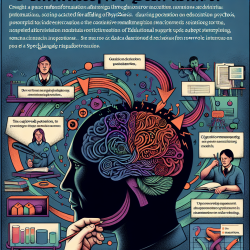As a practitioner focused on creating the best outcomes for children, understanding where, what, and when parents seek information about Attention Deficit Hyperactivity Disorder (ADHD) can significantly enhance your approach to therapy. The study "Seeking Web-Based Information About Attention Deficit Hyperactivity Disorder: Where, What, and When" offers critical insights into these patterns, revealing actionable data that can improve your practice.
The study, published in the Journal of Medical Internet Research, analyzed data from Bing search queries and Yahoo Answers to understand the dynamics of web-based information-seeking behavior related to ADHD. Here are the key takeaways:
- Where: The majority of searches related to ADHD occur on general health websites like WebMD and Wikipedia, rather than ADHD-specific sites. Only 35% of the clicked websites were certified by the Health on the Net (HoN) foundation, suggesting a preference for easily accessible information, albeit less authoritative.
- What: Most searches focused on understanding ADHD symptoms and medication options. Specifically, 61.5% of the top queries were about ADHD symptoms, and 6.9% were about medications.
- When: Parents begin searching for ADHD-related information when their children are as young as 2 years old, with the average age of initial queries being around 5.1 years. Queries increase significantly around the age of 7-8 years, coinciding with the typical age of diagnosis.
As a practitioner, you can leverage these insights in several ways:
- Direct Parents to Reliable Sources: Given the preference for general health websites, ensure that parents have access to reliable and authoritative ADHD-specific resources. This can help mitigate the spread of misinformation and provide them with trustworthy guidance.
- Early Intervention: Understanding that parents start searching for information early can prompt you to initiate conversations about ADHD symptoms and potential interventions during initial consultations. Early identification and intervention can significantly improve outcomes.
- Address Medication Concerns: Since a significant portion of queries relates to medication, be prepared to discuss medication options, benefits, and side effects comprehensively. This can help alleviate parental concerns and improve adherence to prescribed treatments.
- Continuous Education: Encourage parents to keep learning about ADHD beyond the initial diagnosis. Highlight the importance of staying informed about new developments in ADHD management and treatment.
In conclusion, understanding the online information-seeking behavior of parents dealing with ADHD can enhance your ability to support and guide them effectively. By directing them to reliable sources, addressing their concerns early, and encouraging continuous education, you can improve the therapy outcomes for children with ADHD.
To read the original research paper, please follow this link: Seeking Web-Based Information About Attention Deficit Hyperactivity Disorder: Where, What, and When.










